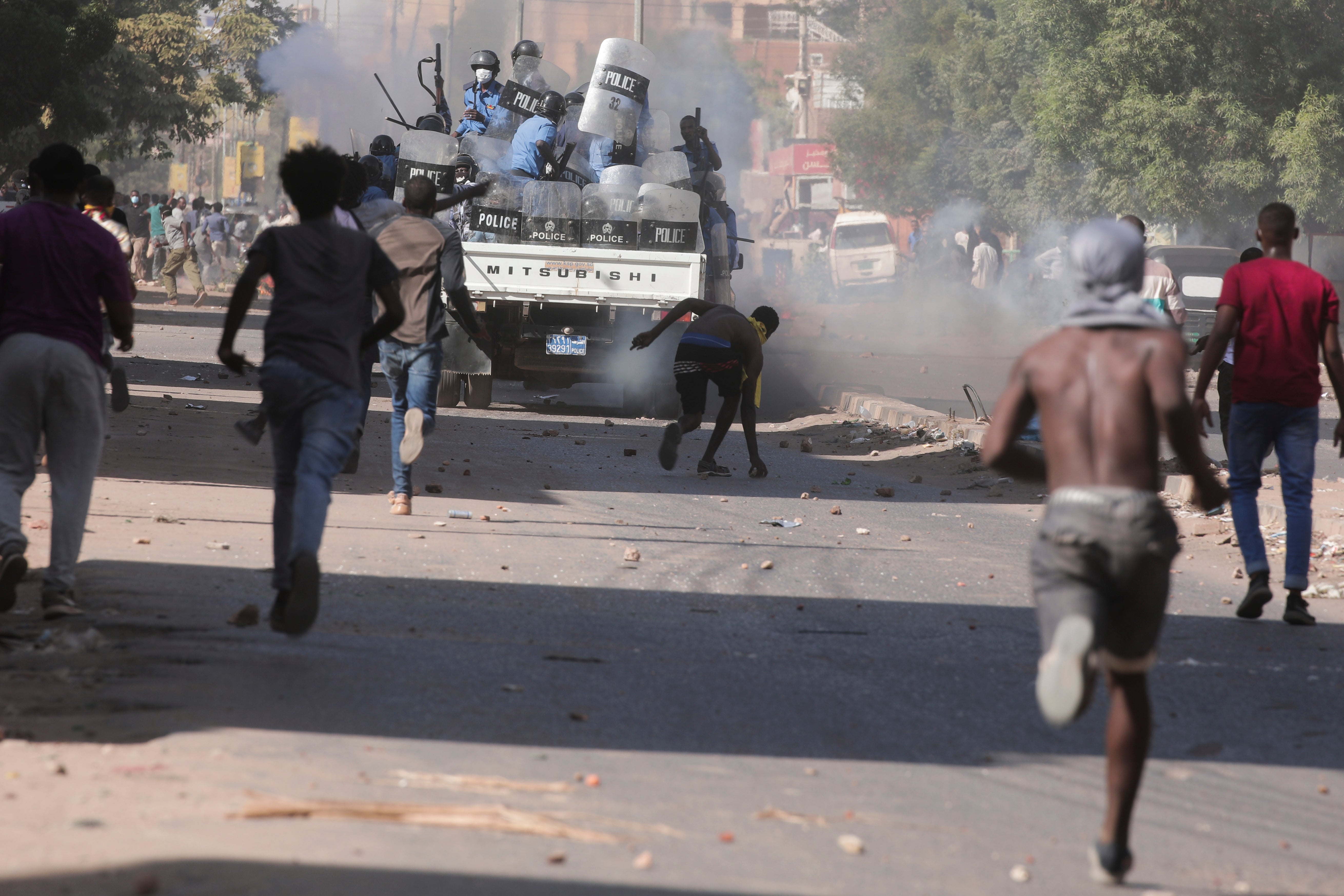Your support helps us to tell the story
From reproductive rights to climate change to Big Tech, The Independent is on the ground when the story is developing. Whether it's investigating the financials of Elon Musk's pro-Trump PAC or producing our latest documentary, 'The A Word', which shines a light on the American women fighting for reproductive rights, we know how important it is to parse out the facts from the messaging.
At such a critical moment in US history, we need reporters on the ground. Your donation allows us to keep sending journalists to speak to both sides of the story.
The Independent is trusted by Americans across the entire political spectrum. And unlike many other quality news outlets, we choose not to lock Americans out of our reporting and analysis with paywalls. We believe quality journalism should be available to everyone, paid for by those who can afford it.
Your support makes all the difference.Security forces shot dead at least 10 people and wounded dozens as thousands of Sudanese protested against last month’s coup in Khartoum and other cities on Wednesday, medics said.
The protesters, marching in neighbourhoods across the capital and its twin cities of Bahri and Omdurman, demanded a full handover to civilian authorities and for the leaders of the Oct. 25 coup to be tried in court.
Security forces fired live bullets and tear gas after mobile phone communications were cut earlier in the day, witnesses said.
“The coup forces used live bullets heavily in different areas of the capital and there are tens of gunshot injuries, some of them in serious condition,” said the Central Committee of Sudanese Doctors, a group of medics aligned with the protest movement.
It reported 10 deaths, including seven in Bahri.
On one main road in Khartoum, protesters burned tyres and chanted: “The people are stronger, and retreat is impossible.”
Others carried pictures of people killed in previous protests and of Abdalla Hamdok, the civilian prime minister who was placed under house arrest during the coup, with the slogan: “Legitimacy comes from the street, not from the cannons.”
Images of protests in towns and cities including Port Sudan, Kassala, Dongola, Wad Madani and Geneina were posted on social media.
Security forces were heavily deployed on main roads and intersections, using tear gas to prevent gatherings, witnesses said. Bridges across the River Nile were closed.
There was no immediate comment from security forces. Military leader Abdel Fattah al-Burhan has previously said peaceful protests are allowed and that the military does not kill protesters.
The coup ended a transitional partnership between the military and a civilian coalition that helped topple autocrat Omar al-Bashir in 2019.
Despite pressure from Western states which have suspended economic assistance, efforts at mediation have stalled, with Burhan moving to cement control with help from Bashir-era veterans.
Mobile internet services in Sudan have been suspended since the coup. This has complicated a campaign of anti-military rallies, strikes and civil disobedience.
The Sudanese Congress Party, which was part of the military and civilian coalition, said one of its leaders had been arrested following a raid on his house.
On Saturday, hundreds of thousands turned out across the country to protest against the coup. Medics said seven people were killed by security forces.

Join our commenting forum
Join thought-provoking conversations, follow other Independent readers and see their replies
Comments